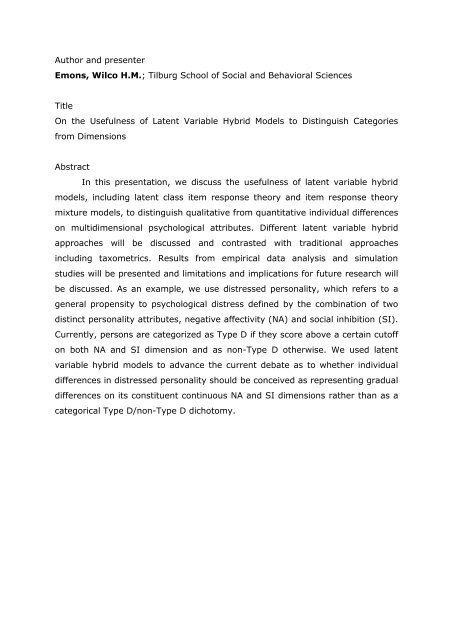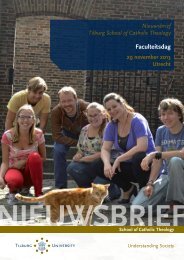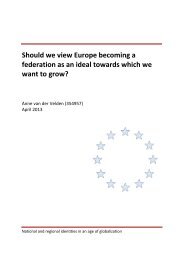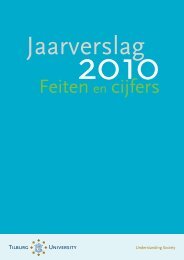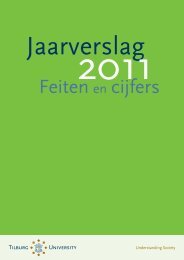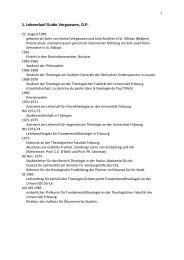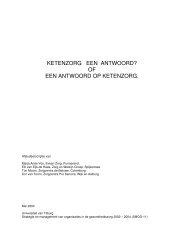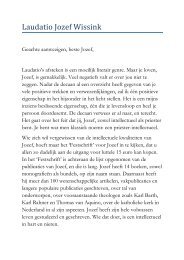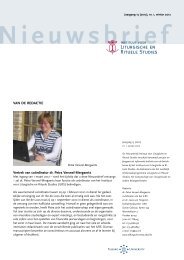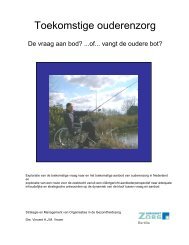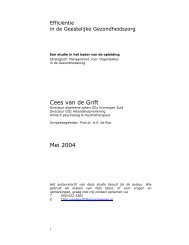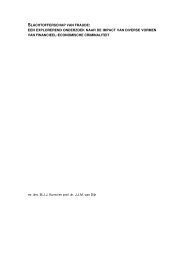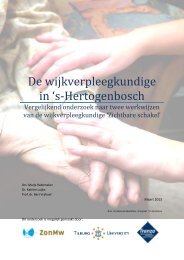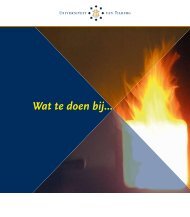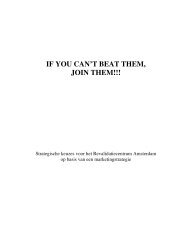Here - Tilburg University
Here - Tilburg University
Here - Tilburg University
Create successful ePaper yourself
Turn your PDF publications into a flip-book with our unique Google optimized e-Paper software.
Author and presenter<br />
Emons, Wilco H.M.; <strong>Tilburg</strong> School of Social and Behavioral Sciences<br />
Title<br />
On the Usefulness of Latent Variable Hybrid Models to Distinguish Categories<br />
from Dimensions<br />
Abstract<br />
In this presentation, we discuss the usefulness of latent variable hybrid<br />
models, including latent class item response theory and item response theory<br />
mixture models, to distinguish qualitative from quantitative individual differences<br />
on multidimensional psychological attributes. Different latent variable hybrid<br />
approaches will be discussed and contrasted with traditional approaches<br />
including taxometrics. Results from empirical data analysis and simulation<br />
studies will be presented and limitations and implications for future research will<br />
be discussed. As an example, we use distressed personality, which refers to a<br />
general propensity to psychological distress defined by the combination of two<br />
distinct personality attributes, negative affectivity (NA) and social inhibition (SI).<br />
Currently, persons are categorized as Type D if they score above a certain cutoff<br />
on both NA and SI dimension and as non-Type D otherwise. We used latent<br />
variable hybrid models to advance the current debate as to whether individual<br />
differences in distressed personality should be conceived as representing gradual<br />
differences on its constituent continuous NA and SI dimensions rather than as a<br />
categorical Type D/non-Type D dichotomy.


